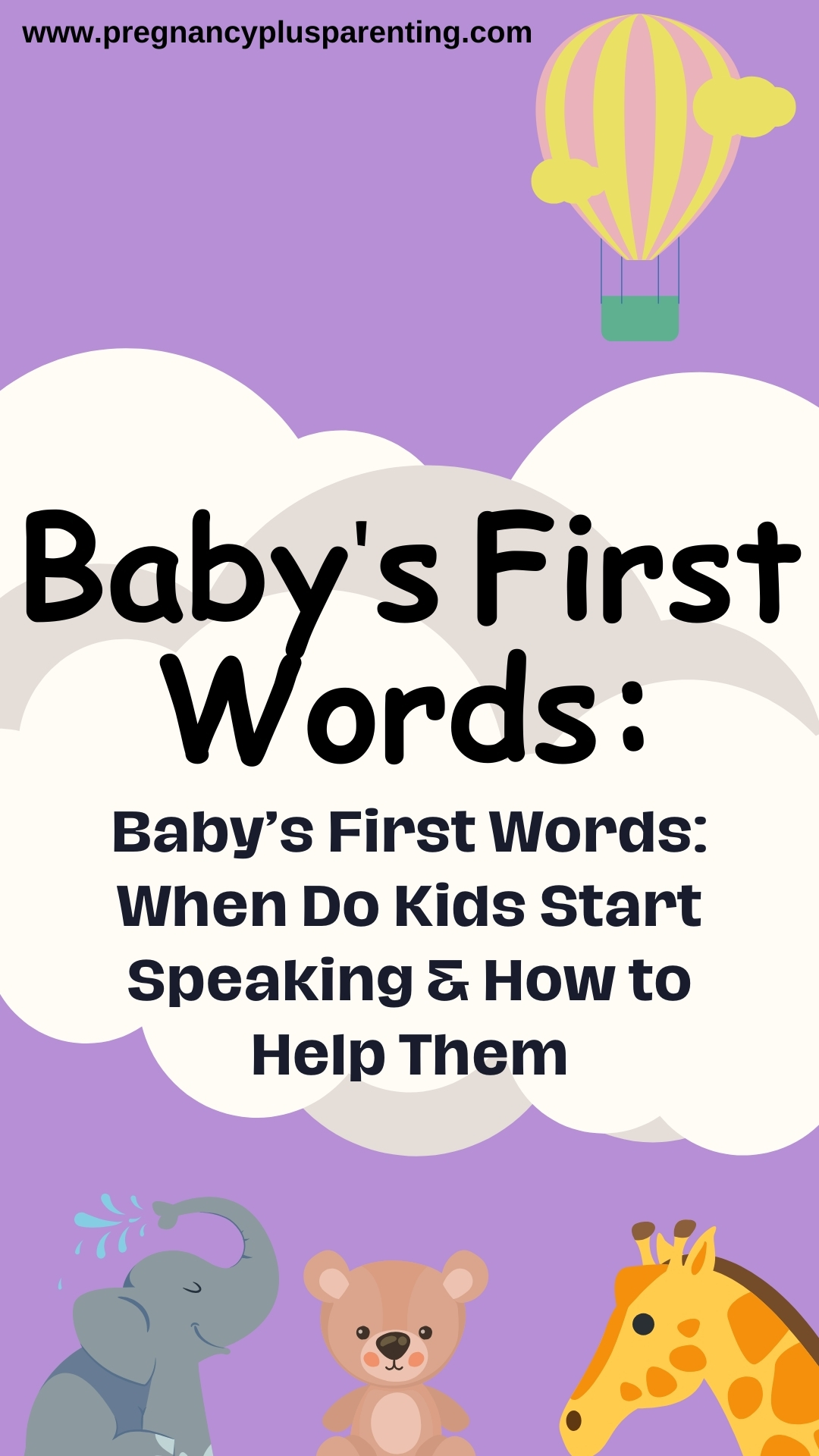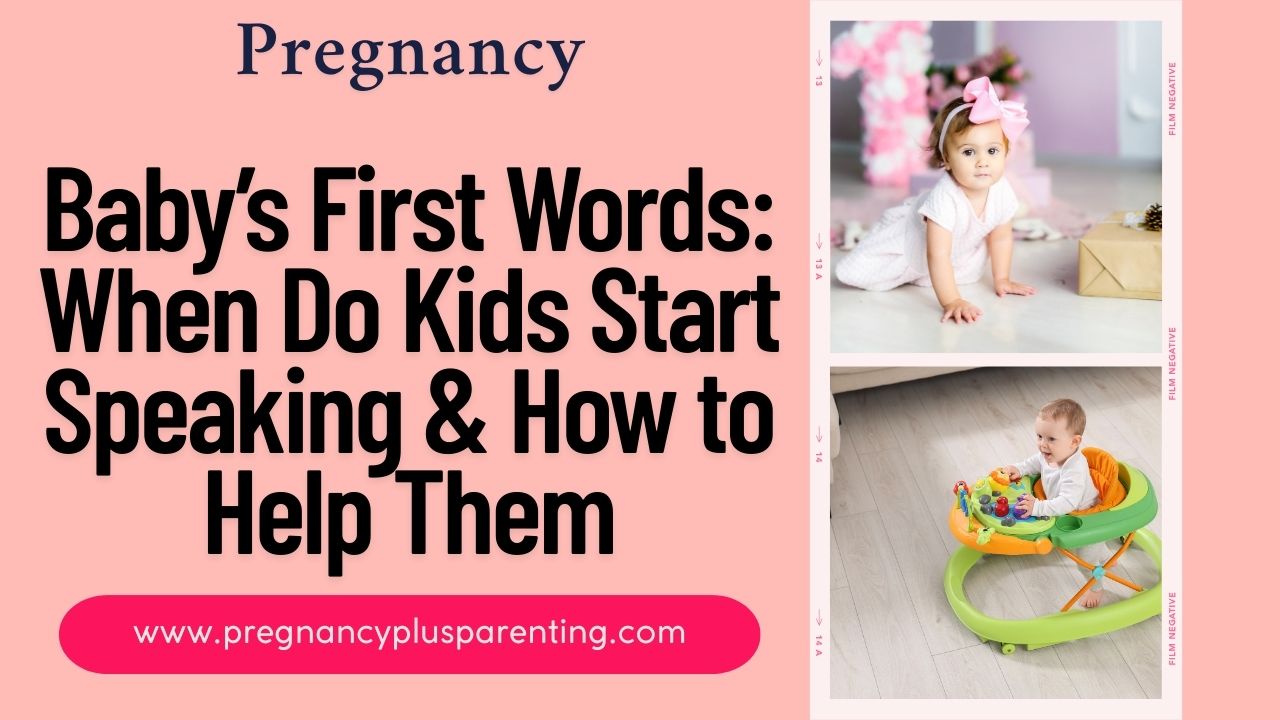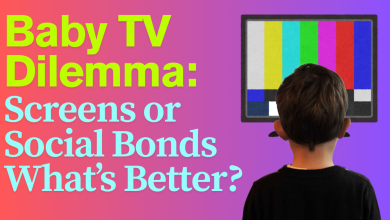Baby’s First Words: When Do Kids Start Speaking & How to Help Them
The neighbor’s child is already babbling happily at 1.5 years old, and their own is still very taciturn at two. Parents may be asking themselves for the first time: When do children start talking?
We need guidance to monitor developments and rule out any abnormalities.
And we need comparisons to orient ourselves.
Of course, every child has their own pace when it comes to development.
This applies to the first steps as well as the first words and sentences.
So guidelines are not laws set in stone!
Some parents tend to rush to a speech therapist when their child has the most common speech impediments.
Others, however, do not want and/or cannot accept that their child may be suffering from a speech disorder.
What abnormalities indicate possible problems?
And when should parents be reassured and just wait?
How can parents support their child’s language development?
In this article you will find the answers.
When do children start speaking sentences?
From about the first year of life, children speak one-word sentences and later two-word sentences.
Yes, “Mommy”, “Daddy” and “ball” are already sentences for toddlers!
Phoneticians explain that these differ from mere sound exercises because they are targeted.
With such utterances or one-word sentences, children also express much more than this one word says.
For example, if you hear your one-year-old child say “ball,” the exact meaning of his utterance depends on the situation: Does the child want you to pass him the ball?
Or does it want to tell you that there is a ball behind the slide?
The sentences are still incorrect at the beginning, the words are often only understandable to close relatives and caregivers.
How are strangers supposed to know that the child’s Jeisch actually means meat , that the pizza has become Zippa in the child’s mouth , or that the playground has been transformed into Piepa ?
We adults have very precise ideas about how a word sounds and is spelled.
But toddlers are not able to distinguish between sentences and words, syllables and sounds very well at first.
They perceive the language as a mush and only learn the individual segments over time.
Just as parents learn to interpret baby signals , infants learn that they can change the sound of the cry and that different reactions will result.
From the third month of life, babies practice articulation and first sounds with their tongue, larynx and lips in the babbling phase.
They babble, coo, squeak, and babble.
Healthy babies are born with everything they need to speak: the language centers in the brain as well as important organs and muscles are already developed in the womb.
The need to interact and communicate with others is also innate and the desire for understanding is present.
And yet some children speak their first word at nine months, while others take two years to do so.
There are also significant differences in language development between children when it comes to their active vocabulary : some children have over 50 words from the age of 1.5, while others actively use as many as 200 words.
The active vocabulary and the first sentences are clearly distinguishable from language comprehension.
When do children begin to understand?
Isn’t it incredible that babies learn to distinguish their mother’s voice from others even in the womb?
And already at the age of 6 to 12 months, they recognize and understand certain words that come from their immediate environment.
They develop an increasingly better sense of sentence and speech melody, the emphasis of words and the sounds of language.
They respond enthusiastically to singing games, rhymes and conscious, emphasized use of language.
At the age of 12 to 18 months, toddlers learn to understand simple requests such as “Please bring the ball!” or “Please come here!”
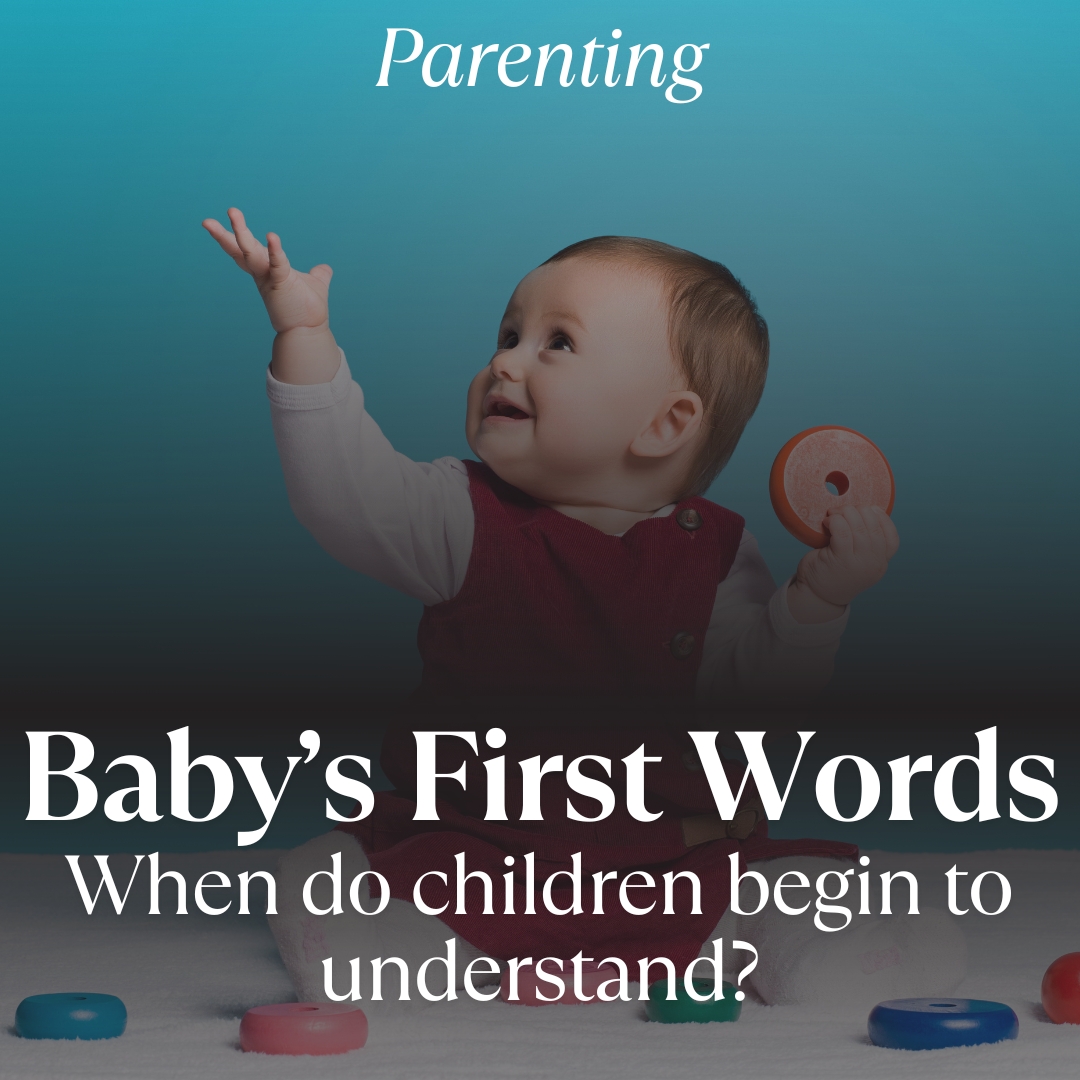
While at this age they actively know an average of 20 to 30 words, they understand much more, namely around 100 to 150 words.
For parents whose children start speaking late, this is reassuring: It makes a very important difference whether the child does not speak or does not understand.
Many worries are therefore unfounded, because real abnormalities are hard to miss.
Anatomical difficulties such as a shortened frenulum of the lip or tongue are usually noticed during breastfeeding.
And if later the child can eat and drink without difficulty and obviously understands what is being said, there is no reason to worry.
Every child has their own pace and shouldn’t be met with impatience. Perhaps your child has had frequent infections?
These can affect hearing and make the child a late talker.
But late talkers also show interest and enjoyment in communication, making noises and sounds and imitating them.
This is a good sign, even if peers are already far ahead.
Why doesn’t my child speak at 2 years old?
The risk of delayed language acquisition is increased in boys from lower social classes, in babies with lower birth weight, in cases of lack of early intervention, in cases of advanced maternal age at birth and in cases of child attention deficits.
These factors that make a child a late talker are conclusions from a 2017 study in the US Journal of Speech, Language And Hearing Research .
She examined data from 9,600 children aged 9, 24, 48 and 60 months.
If your child has not yet used 50 words and cannot form two-word sentences after their second birthday , they will be labeled as a late talker at the latest during the U7 examination.
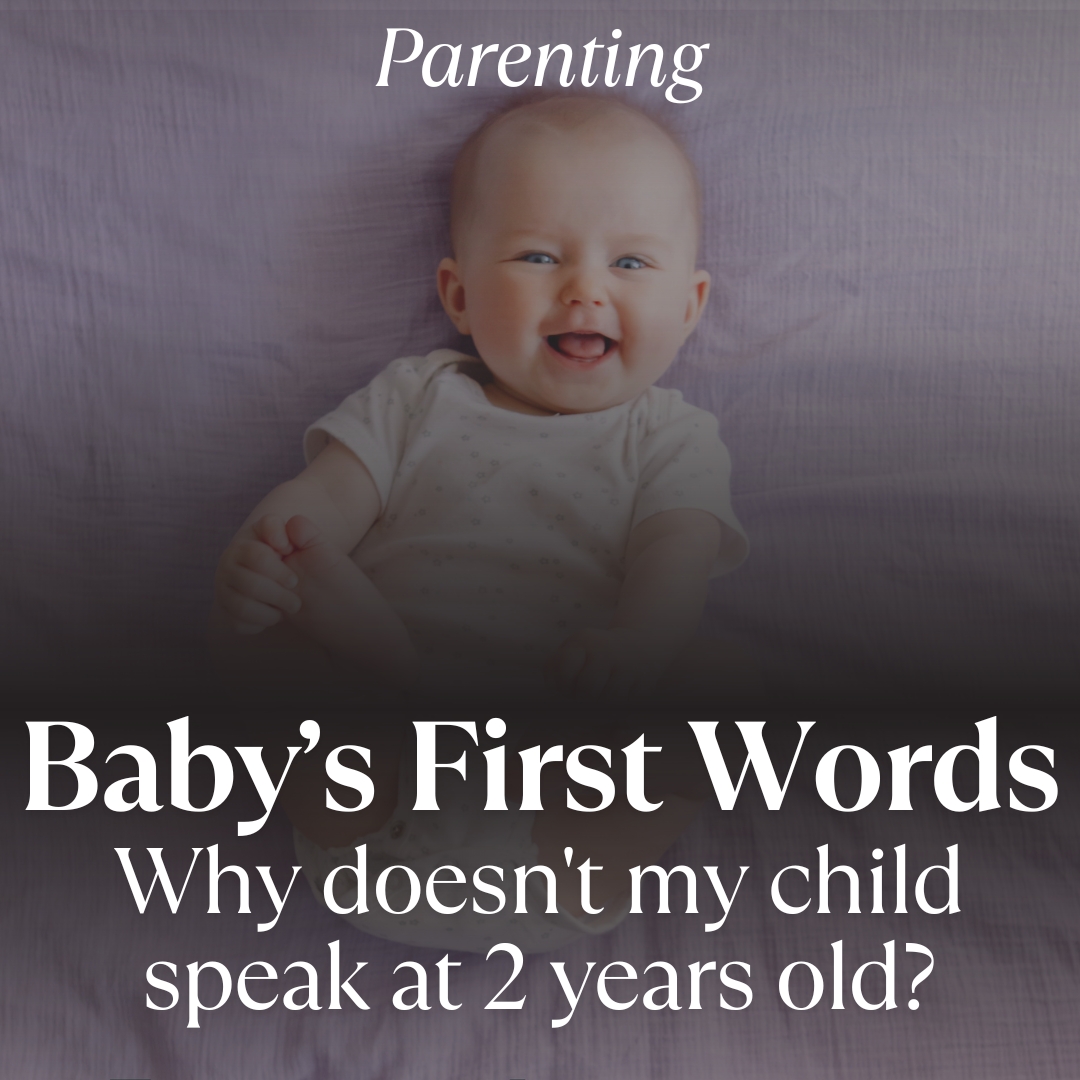
The diagnosis will then be recorded in the examination record. Of course, the first step is to rule out any hearing problems that your child may have.
Half of the late talkers catch up with their peers by their third birthday and catch up explosively with delayed learners.
However, the other half may have a speech disorder.
They hardly learn new words and do not internalize grammatical rules.
If the child at the age of four or five does not yet form multi-word sentences and sounds only incompletely and has a very small vocabulary, speech therapy is necessary.
It is important to emphasize that the ZEL Center for Development and Learning in Heidelberg states in a brochure that no child is too lazy to learn to speak.
So even if your child just points at objects instead of speaking and you react with understanding, you are not making a mistake!
Genetic predisposition also plays an important role for many late talkers.
Are there any relatives in the family who started speaking later or had a speech development disorder?
As already mentioned, frequent infections such as middle ear infections can also have a negative impact on hearing.
Without hearing, there is no speaking! Your pediatrician will check for a hearing impairment.
The use of mobile phones, tablets and television in early childhood is also detrimental to language development.
Parents should also keep their distance from smartphones and television.
Only with attentive care does the child learn to speak.
Other causes such as anatomical and neurological damage, mental impairments and difficulties such as autism and mutism must be diagnosed and treated by specialists.
However, such difficult disorders are usually detected early.
How can you support your child in learning to speak?
Whether your child is a late talker or not, you can help them develop their language skills from an early age.
Here are some tips for proper and playful language development.
1. Patience is the mother of speaking
The idea that a child is too lazy to speak and that parents should not accept this is simply wrong.
Don’t listen to the voices that tell you this.
Learning to speak is a great challenge for a child who cannot read or write and has to rely on his or her hearing.
How does that word start again? What did Mom emphasize?
And why doesn’t she always do it the same way?
There are not only a variety of rules from phonetics to sentence structure, but also exceptions.
The child learns all of this over time, without knowing the rules.
And this unconscious learning process naturally takes time!
Allow your child this time without letting frustration arise.
This also applies to speech therapy: nothing good can be achieved with impatience.
2. No progress without interaction
You can’t put a child in front of the television and expect them to talk just because they get a lot of language that way.
No, for language development your child needs you and other people to talk to him.
Only concrete situations in which the child finds himself promote his understanding of language.
Your child observes how you move your lips when you speak, what you do while speaking, where you point, and what facial expressions you make.
You also repeat certain words for your child so that they can remember them better.
This is not the case with screens!
Nothing comes from nothing.
But even a little interaction can make a big difference.
3. Make room for mistakes
Please do not interrupt your child if he or she expresses something incorrectly.
So if you hear Papa geesst , don’t point out that it’s a mistake.
Simply repeat the sentence correctly with an appreciative tone: Yes, Dad ate.
Of course, this also applies to one-word sentences.
Even if your child says Pielpa for the hundredth time , stay calm and patient.
Your tone is also extremely important, and your child can certainly hear your frustration. ” Yes, we’re going to the playground ,” you should reply benevolently with a smile.
This is called passive correction and signals to your child that he or she is understood and on the right track.
This encouragement is needed to avoid developing inhibitions.
4. Imitate instead of teaching
Children learn through imitation, whether they imitate adults or other children.
When we imitate others, we send a clear signal that we like what they do and that we are role models.
It’s no wonder that as soon as toddlers can walk, they imitate their parents in everything from household chores to personal behaviors and preferences.
But we can also imitate children.
They’ll be delighted! As soon as you imitate your child’s movements or sounds, they’ll squeal with delight.
Use this and then add one or two new words.
At best, you will get your child to mirror you too.
5. Talk, talk, talk
You shouldn’t be taciturn yourself when your child is learning to speak.
Be prepared for a lot of talking and repetition.
If your child is there, you can comment on what you or you are doing.
While you are emptying the dishwasher and your child wants to help you, name each individual action: We open the dishwasher door.
Now we take out a plate.
Now we take out the second plate, the third, etc.
Next comes the fork, spoon, cup, etc.
The same applies to your walk or the way to the playground: name and comment on as many things you pass as possible.
Yes, it can be exhausting. It requires constant focus and energy.
But your child is worth it!
6. Expand baby language
It’s so cute how the child says woof-wow or brumm brumm.
You have already read that imitation of the child can be encouraging.
But if you’re still saying “woof-woof” from the time your child turns one, then add a simple sentence or rhyme like ” The dog, the dog, he has something in his mouth.”
Baby talk is not only cute, but also serves an important purpose: it strengthens the parent-child bond .
In particular, the slow pace, the clear emphasis and the higher pitch of the parents’ voice have an encouraging effect on the child and promote language development.
Baby language therefore provides a basic framework for speaking.
To ensure that the house continues to develop, caregivers are best advised to speak in complete sentences and rhymes.
7. Repetitions that are fun
Both you and your child will enjoy rhymes, finger plays, role-playing, and rhythm. Of course, reading is also fun, so reading picture books and hidden object books should be a regular part of your daily routine, starting at the first birthday at the latest.
Even simple board games like memory or puzzles are suitable for the regular repetition of words and simple sentences. And we know that we only learn through repetition.
Rhymes and rhythm are closely linked.
The better the sense of rhythm, the easier it is to internalize and reproduce a particular speech melody.
You don’t even need specific rhythm games for this. If you tap on pots or other objects, your child will enthusiastically imitate you.
So let your child discover the rhythm early on.
After all, rhymes also have a rhythm.
You can find countless nursery rhymes quickly and easily on the internet.
Try them out and repeat your favorites.
By the way, finger games also have a rhythm.
In addition to language comprehension, they also promote fine motor skills.
Did you know that the brain areas responsible for language and fine motor skills are closely linked?
Children also use and repeat many words in role-playing games .
Whether with a doll’s pram, doctor’s bag or shop, the different roles require different expressions.
The child learns these skills from parents, at the market and during doctor’s visits and practices them in play.
Final thoughts
Some children start speaking later than others.
Parents often ask themselves whether their child is a case for speech therapy.
However, at the beginning of language acquisition, mistakes, incorrect sound formations and incorrect sound sequences are completely normal and no cause for concern.
In general, everything is fine if your child is interested in communication and language games, makes noises and sounds and signals through facial expressions and gestures that he or she understands you and others.
Language comprehension develops much earlier than active vocabulary.
There are children who, at the age of two, speak only a few words and hardly any simple sentences.
During the U-examination, the pediatrician checks whether such a child suffers from a hearing impairment.
If there are no abnormalities, the child is diagnosed as a late talker.
There is research and studies on the causes of delayed language acquisition and language development disorders.
In this article, I have listed possible reasons that lead to such difficulties.
You will also find tips here on what you can do to promote your child’s language skills early on.
Some of it may sound strenuous, but you’ll see: Both you and your child will have a lot of fun together when following these tips!
